
The Impact of Artificial Intelligence on Internal Communication
February 8, 2024
Artificial Intelligence is an ever-evolving technology that is transforming the way companies communicate with their employees
In the past, Internal Communication was often seen as a secondary discipline compared to external communication, but this has changed in recent years. Now, most organizations understand the value of effective Internal Communication and recognize that investing in it is investing in their human capital, demonstrating that employees are important and worth listening to, fostering transparent and close bidirectional communication.
On the other hand, Artificial Intelligence has definitively emerged from laboratories and is increasingly accessible to all companies and individuals. AI is becoming an intelligent revolution, enabling companies to significantly improve their operations through personalized, efficient, and accurate solutions.
Regarding Internal Communication, AI offers a wide range of tools ranging from faster addressing of employee needs, for example, through assistance chatbots, to detecting potential employee satisfaction issues through sentiment analysis. This way, employees can communicate with the company more effectively and receive relevant information quickly and accurately, thus reducing manual workload and improving efficiency in Internal Communication.
However, we also have to consider the ethical and privacy challenges that AI brings, as well as the need for human supervision and consideration of the organization's culture. This is an opinion that might not have greater significance if it were not generated by Artificial Intelligence. More specifically, it is the response to the question «What can you tell me about the impact that Artificial Intelligence will have regarding Internal Communication in the company?» asked to ChatGPT while preparing the presentation of a webinar discussing how Artificial Intelligence facilitates the work of Internal Communication.
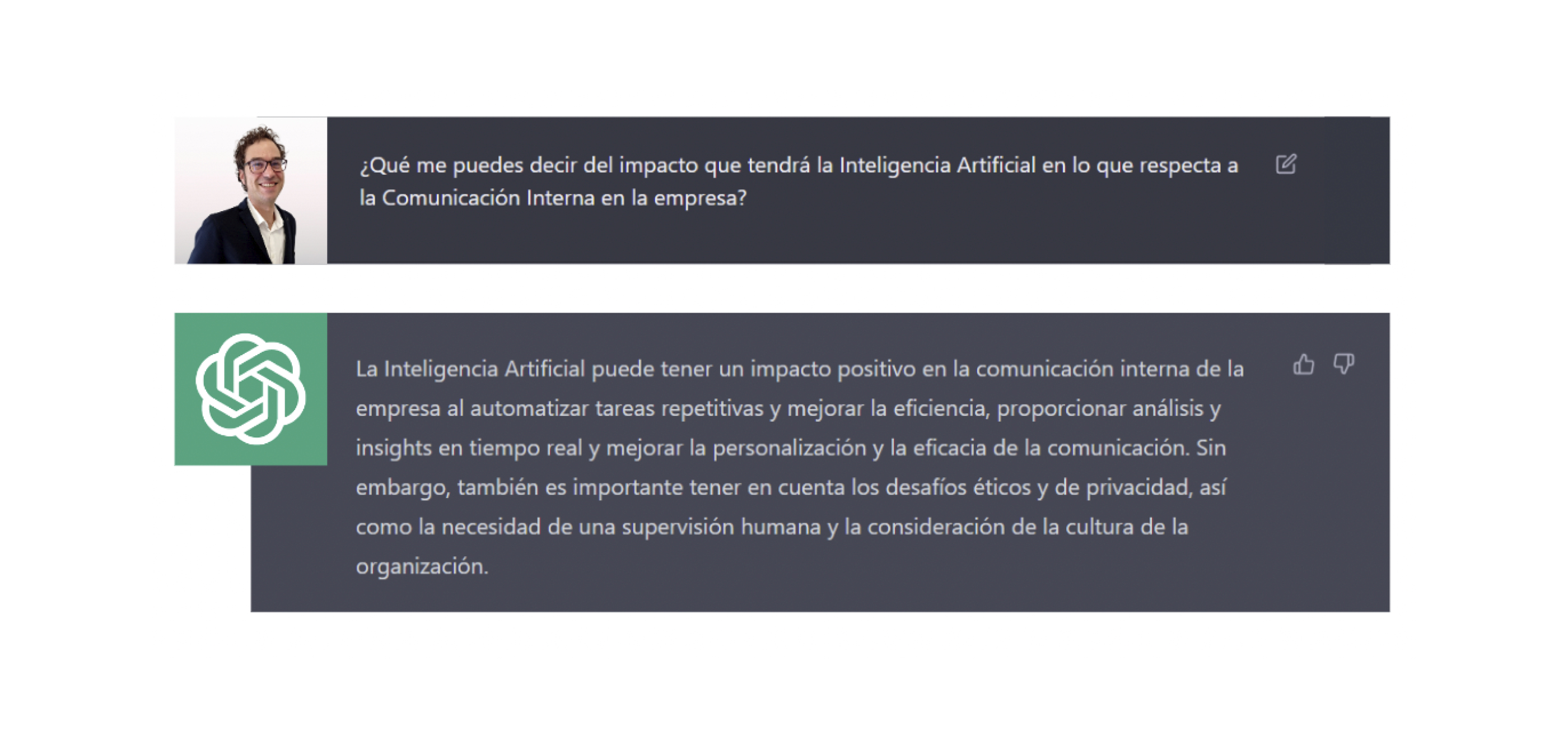
Four examples of how AI enhances the efficiency of your Internal Communication
AI is a technology that allows machines to learn from data and perform tasks that typically require human intelligence, such as reasoning, perception, and natural language processing. In the context of Internal Communication, AI is used to automate tasks that previously required human intervention, such as email sorting, identification of relevant topics in conversations, and sentiment analysis in comments.
AI is also used to personalize internal communication, meaning it adapts to the individual needs and preferences of employees. This can enhance the employee experience and increase the effectiveness of Internal Communication.
Below are some specific examples of how companies are using AI in internal communication:
- Sentiment Analysis: Some companies use AI-based sentiment analysis tools to measure the tone and emotion of employee comments. This allows them to identify areas for improvement in internal communication and address issues proactively.
- Chatbots for Customer Support: Companies utilize AI-based chatbots to enhance customer support and reduce response times. These assistants can provide information and answers to frequently asked questions, enabling employees to quickly obtain the information they need.
- Communication Personalization: Some companies employ AI to personalize Internal Communication based on individual employee needs and preferences. This can improve the employee experience and enhance communication effectiveness.
- Task Automation: AI is used to automate tasks that previously required human intervention, such as email sorting and identifying relevant topics in conversations. This can reduce the workload for employees and allow them to focus on more strategic tasks.

Will AI be our ally or our enemy in the future of work?
As we were saying earlier, we are facing another major revolution, as now we are indeed capable of making technology able to see, hear, and speak, as my colleagues from the SNGULAR AI team say. But many of you may also be thinking about the question that cannot be overlooked. Does this mean that we will all be out of jobs in a few years?
To be more precise, we asked ChatGPT, «What would happen if Artificial Intelligence did all the work that people do?», and here is its response:
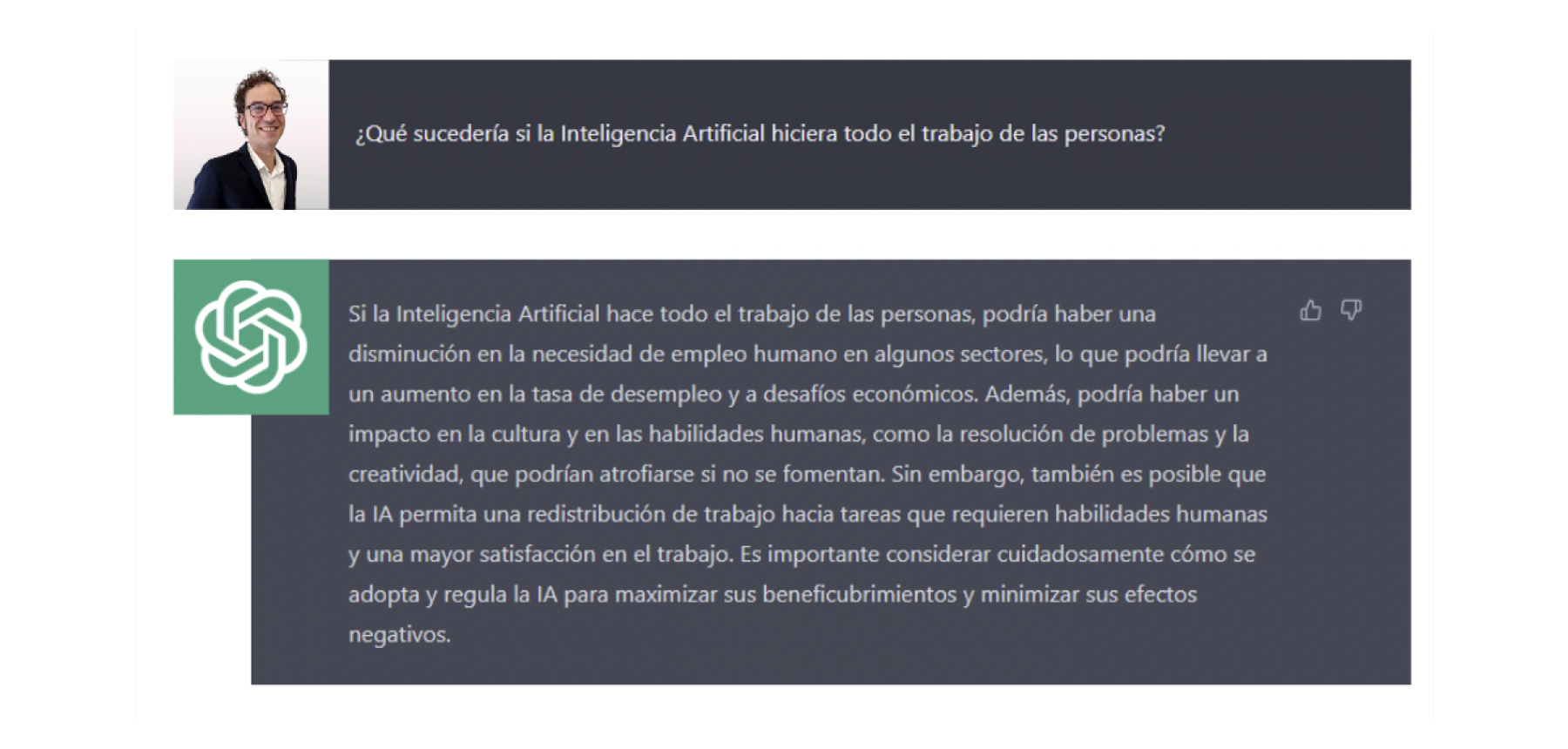
In essence, what it's telling us is that if this were to happen, it could lead to an increase in the unemployment rate and economic challenges. There would also be an impact on culture and human skills, such as problem-solving and creativity, which could potentially stagnate if not nurtured. However, it's also possible that AI could enable a redistribution of work towards tasks that require human skills and greater job satisfaction.
For AI to be an ally in the future of work, measures must be implemented to ensure that workers are prepared to work alongside AI and that decisions are transparent and fair. If these concerns are adequately addressed, artificial intelligence can be a powerful tool for improving the future of work. In summary, what happens will depend on what we decide will happen.
So, what are we really facing in the immediate future? McKinsey & Company told us a few years ago that less than 5% of jobs consist of completely automatable activities. That leaves us with 95% of jobs free from risk.
Currently, in 60% of jobs, at least one-third of tasks consist of manual and repetitive actions, making them automatable. And this can be done with many technologies, including Artificial Intelligence. The consequence of all this will be that we'll end up automating tasks that correspond to what are known in English as the three Ds: dull tasks, dirty tasks, and dangerous tasks. The result is that we will be much more productive, performing higher-value, more enjoyable work that also entails less risk to our health.
Enhance your internal efficiency and delve into the world of AI
At SNGULAR, we are committed to enhancing business productivity through the implementation of technologies such as artificial intelligence. Our team of AI experts can assist your company in identifying areas where these technologies can be utilized to improve efficiency, productivity, reduce costs, and enhance process quality. We ensure to work closely with our clients to understand their requirements and provide tailored solutions that enable them to optimize their processes effectively.
If you would like more information on how we can help improve your company's productivity through artificial intelligence, we encourage you to contact us. We look forward to working with you!
Here's a translation of the text based on Ramón García's presentation (Marketing & Partners Director at SNGULAR) for the webinar: Making Your Internal Communication Easier with Artificial Intelligence.
Our latest news
Interested in learning more about how we are constantly adapting to the new digital frontier?
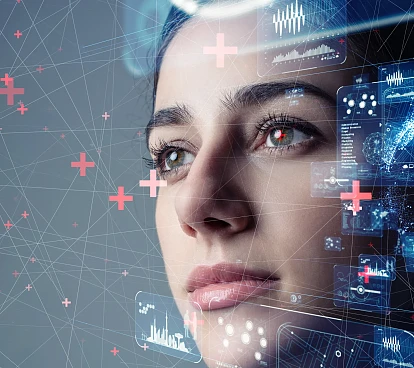
Insight
December 10, 2024
Groundbreaking technologies today that will reshape the innovation landscape in 2025
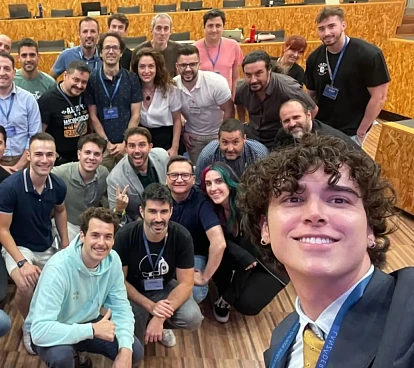
Insight
December 4, 2024
A Journey of Innovation, Improvement and Magic

Insight
November 7, 2024
Compliance with the European Union's Artificial Intelligence Act. ISO 42001
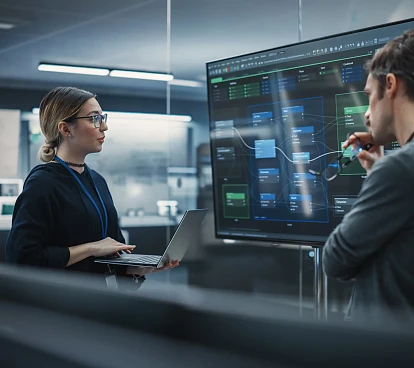
Insight
November 6, 2024
Artificial Intelligence, from technology to transformation
